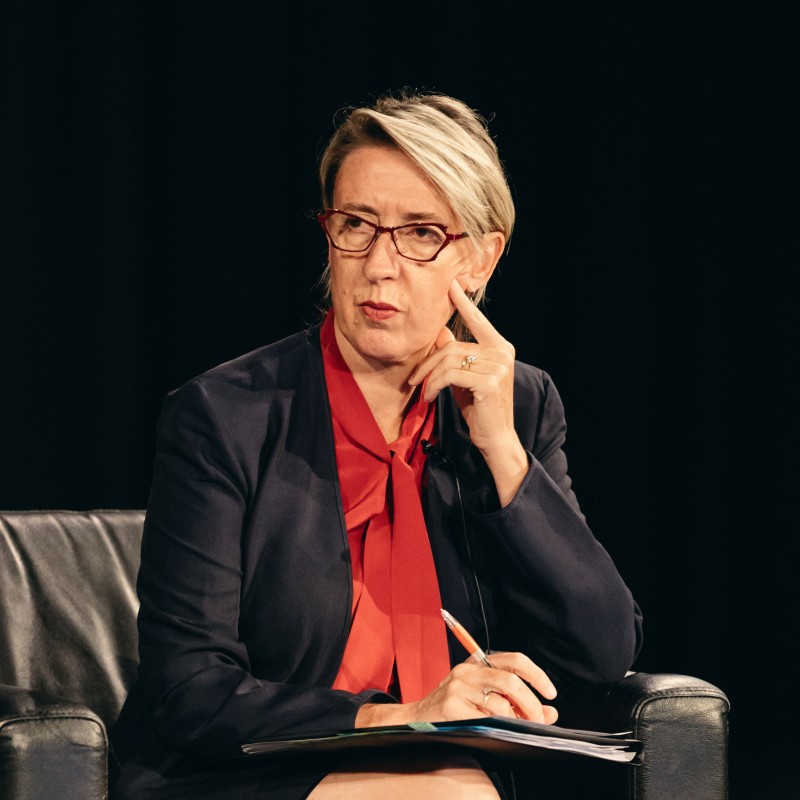At least one Vice-Chancellor has called for Universities Australia (UA) CEO Catriona Jackson to resign after weeks of rising criticism over sustained high levels of sexual assault and sexual harassment (SASH) on campuses across the country.
Ms Jackson has come under fire for overseeing the university sector’s haphazard and inadequate national response to SASH on campuses. According to the ABC, Deakin Vice-Chancellor Professor Iain Martin wrote to UA’s chair, Professor David Lloyd, and the UA board asking to hold a meeting to evaluate Jackson’s future as CEO.
In July this year, Ms Jackson announced that UA would drop its planned $1.5 million communications campaign to prevent sexual violence, claiming a uniform nationwide campaign would not be sufficiently tailored to engage students of different regions and backgrounds.
She denied allegations that UA discarded the campaign because some vice-chancellors objected to the explicit content in its messaging.
In place of the campaign, she announced all universities would hold a “Respect at Uni” week at the start of semester one next year, supported by a new “good practice guide” for respectful relationships.
However, UA chair Professor Lloyd contradicted this announcement last week, revealing vice-chancellors had not agreed to hold a sector-wide “Respect at Uni” event. Lloyd announced instead that universities would run their own events and that UA would run a redesigned survey on sexual violence in 2024.
UA’s last National Student Safety Survey, published in 2022, found one in six students had been sexually harassed and one in twenty students had been assaulted. Additionally, ANU remained the second-worst university in the country in terms of SASH prevalence.
The 2022 Survey confirmed the findings of the Australian Human Rights Commission’s 2017 report “Change the Course,” which found one in five students had been sexually harassed and 1.6 per cent had been sexually assaulted.
While both surveys have prompted responses from universities, progress has been significantly lacking. Recent research from the UNSW Australian Human Rights Institute found three-quarters of Australian universities were failing to meet transparency recommendations from “Change the Course” about sexual violence.
The Women’s Department has advocated for the ANU to support and listen to survivors and to consult the student community on proposed changes, holding protests annually since the 2017 report’s release.
While the Australian Financial Review has reported Ms Jackson will retain the backing of Professor Lloyd and the board, the challenge to her position shows the sector is feeling the heat as advocacy moves from the grassroots into government.
The federal government has put increasing pressure on the university sector to improve SASH prevention since the Universities Accord interim report highlighted the area as an urgent issue this July.
Federal Education Minister Jason Clare last week announced the appointment of anti-violence organisation Our Watch chief, Patty Kinnersly, to advise a working body on how universities can make campuses safer.
Mr Clare said on Wednesday that the sector’s responses “have not been good enough …university governing bodies must do more.
The new working body falls short of meeting the demands of leading advocacy organisations End Rape on Campus and Fair Agenda to appoint an independent body to monitor SASH on campus.
We acknowledge the Ngunnawal and Ngambri people, who are the Traditional Custodians of the land on which Woroni, Woroni Radio and Woroni TV are created, edited, published, printed and distributed. We pay our respects to Elders past and present. We acknowledge that the name Woroni was taken from the Wadi Wadi Nation without permission, and we are striving to do better for future reconciliation.
